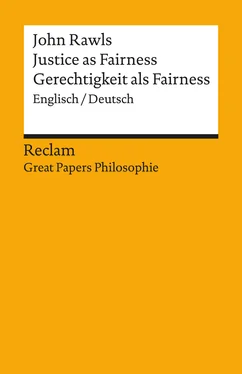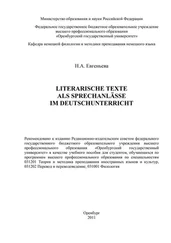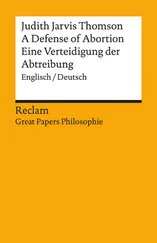It should be noted that the second principle holds that an inequality is allowed only if there is reason to believe that the practice with the inequality, or resulting in it, will work for the advantage of every party engaging in it. Here it is important to stress that every party must gain from the inequality. Since the [168] principle applies to practices, it implies that the representative man in every office or position defined by a practice, when he views it as a going concern, must find it reasonable to prefer his condition and prospects with the inequality to what they would be under the practice without it. The principle excludes, therefore, the justification of inequalities on the grounds that the disadvantages of those in one position are outweighed by the greater advantages of those in another position. This rather simple restriction is the main modification I wish to make [20]in the utilitarian principle as usually understood. When coupled with the notion of a practice, it is a restriction of consequence5, and one which some utilitarians, e.g., Hume [22]and Mill, have used in their discussions of justice without realizing apparently its significance, or at least without calling attention to it.6 Why it is a significant [169] modification of principle, changing one’s conception of justice entirely, the whole of my argument will show.
Further, it is also necessary that the various offices to which special benefits or burdens attach are open to all. It may be, for example, to the common advantage, as just defined, to attach special benefits to certain offices. Perhaps by doing so the requisite talent can be attracted to them and [24]encouraged to give its best efforts. But any offices having special benefits must be won in a fair competition in which contestants are judged on their merits. If some offices were not open, those excluded would normally be justified in feeling unjustly treated, even if they benefited from the greater efforts of those who were allowed to compete for them. Now if one can assume that offices are open, it is necessary only to consider the design of practices themselves and how they jointly, as a system, work together. It will be a mistake to focus attention on the varying relative positions of particular persons, who may be known to us by their proper names, and to require that each such change, as a once for all transaction viewed in isolation, must be in itself just. It is the system of practices which is to be judged, and judged from a general point of view: unless one is prepared to criticize it from the standpoint of a representative man holding some particular office, one has no complaint against it.
3. Given these principles one might try to derive them from a priori principles of reason, or claim that they were known by intuition. These are familiar enough steps and, at least in the case of the first principle, might be made with some success. Usually, however, such arguments, made at this point, are unconvincing. They are not likely to lead to an [26]understanding of the basis of the principles of justice, not at least as principles of justice. I wish, therefore, to look at the principles in a different way.
Imagine a society of persons amongst whom a certain system [170] of practices is already well established. Now suppose that by and large they are mutually self-interested; their allegiance to their established practices is normally founded on the prospect of self-advantage. One need not assume that, in all senses of the term “person,” the persons in this society are mutually self-interested. If the characterization as mutually self-interested applies when the line of division is the family, it may still be true that members of families are bound by ties of sentiment and affection and willingly acknowledge duties in contradiction to self-interest. Mutual self-interestedness in the relations between families, nations, churches, and the like, is commonly associated with intense loyalty and devotion on the part of individual members. Therefore, one can form a more realistic conception of this society if one thinks of it as consisting of mutually self-interested families, or some other association. Further, it is not necessary to suppose that these persons are mutually self-interested under all circumstances, but only in the usual situations in which they participate in their common practices.
Now suppose also that these persons are rational: they know their own interests more or less accurately; they are [28]capable of tracing out the likely consequences of adopting one practice rather than another; they are capable of adhering to a course of action once they have decided upon it; they can resist present temptations and the enticements of immediate gain; and the bare knowledge or perception of the difference between their condition and that of others is not, within certain limits and in itself, a source of great dissatisfaction. Only the last point adds anything to the usual definition of rationality. This definition should allow, I think, for the idea that a rational man would not be greatly downcast from knowing, or seeing, that others are in a better position than himself, unless he thought their being so was the result of injustice, or the consequence of letting chance work itself out for no useful common purpose, and so on. So if these persons strike us as unpleasantly egoistic, they are at least free in some degree from the fault of envy.7 [171]
[30]Finally, assume that these persons have roughly similar needs and interests, or needs and interests in various ways complementary, so that fruitful cooperation amongst them is possible; and suppose that they are sufficiently equal in power and ability to guarantee that in normal circumstances none is able to dominate the others. This condition (as well as the others) may seem excessively vague; but in view of the conception of justice to which the argument leads, there seems no reason for making it more exact here.
Since these persons are conceived as engaging in their common practices, which are already established, there is no question of our supposing them to come together to deliberate as to how they will set these practices up for the first time. Yet we can imagine that from time to time they discuss with one another whether any of them has a legitimate complaint against their established institutions. Such discussions are perfectly natural in any normal society. Now suppose that they have settled on doing this in the following way. They first try to arrive at the principles by which complaints, and so practices themselves, are to be judged. Their procedure for this is to let each person propose the principles upon which he wishes his complaints to be tried with the understanding that, if acknowledged, the complaints of others will be similarly tried, and that no [32]complaints will be heard at all until everyone is roughly of one mind as to how complaints are to be judged. They each understand further that the principles proposed and acknowledged on this occasion are binding on future occasions. Thus each will be wary of proposing a principle which would give him a peculiar advantage, in his present circumstances, supposing it to be accepted. Each person knows that he will be bound by it in future circumstances the peculiarities of which cannot be known, and which might well be such that the principle is then to his disadvantage. The idea is that everyone should be required to make in advance a firm commitment, which others also may reasonably be expected to make, and [172] that no one be given the opportunity to tailor the canons of a legitimate complaint to fit his own special condition, and then to discard them when they no longer suit his purpose. Hence each person will propose principles of a general kind which will, to a large degree, gain their sense from the various applications to be made of them, the particular circumstances of which being as yet unknown. These principles will express the conditions in accordance with which each is the least unwilling to have his interests limited in the design of practices, given the competing interests of the others, on the supposition that the interests of others will be limited likewise. The [34]restrictions which would so arise might be thought of as those a person would keep in mind if he were designing a practice in which his enemy were to assign him his place.
Читать дальше












